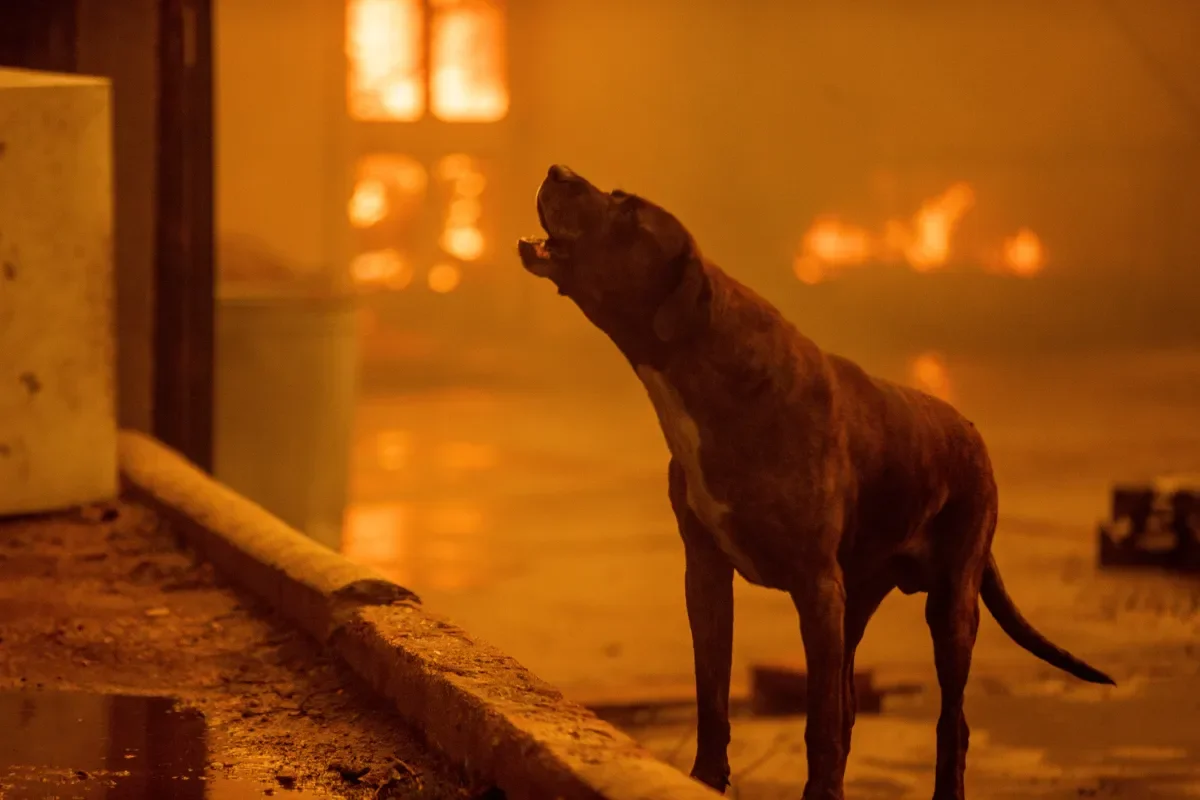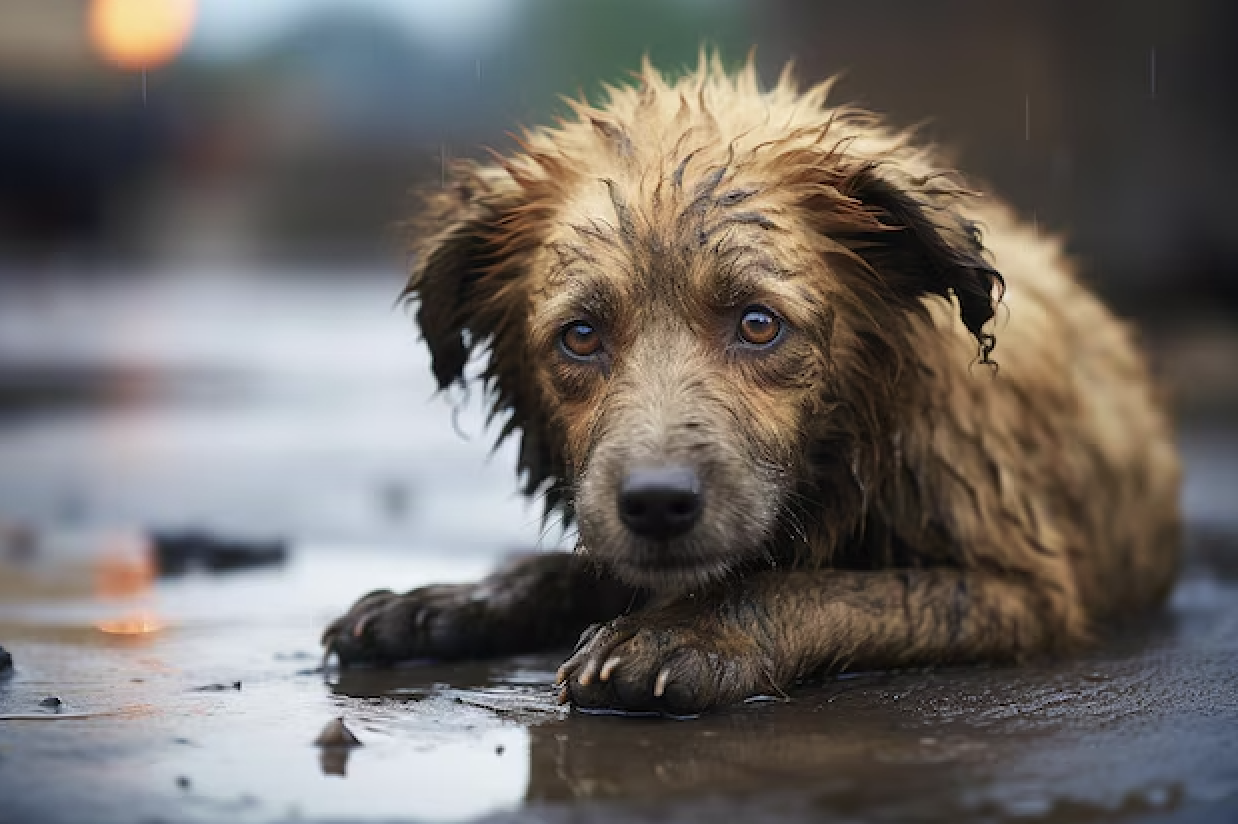How to Prepare for Natural Disasters With Your Dog
As climate change continues to impact our world, we’ve seen a rise in extreme weather events and natural disasters. In the past year alone, the U.S. has faced devastating wildfires in Los Angeles that displaced more than 100,000 people and caused $30 billion in insured property damage, storm outbreaks producing 156 tornadoes across the Midwest and South, and catastrophic flooding in Central Texas that surged the Guadalupe River over 26 feet.
These disasters have a profound impact on people across the country — and just as critically, on dogs and other companion animals.
During natural disasters, dogs are especially vulnerable. They may become separated from their families, get lost or injured, or be turned away from emergency shelters that aren't pet-friendly. Without proper planning, many dogs are left behind in chaotic or unsafe conditions.
While Real Good Rescue’s focus is on dogs, the tips below can be helpful for pet owners of all kinds.
Make Sure Your Dog Has Proper ID and a Microchip
Thousands of pets are separated from their families during disasters. Give your dog the best chance of being returned to you:
Ensure your dog is wearing a collar with secure, up-to-date ID tags.
Microchip your dog, and make sure the microchip is registered and the contact info is current.
Include your current phone number and address, plus an emergency contact who lives outside your area in case local communications are down.
Tip: Many shelters, vets, and rescues offer low-cost microchipping clinics; it’s one of the most effective ways to reunite with a lost pet.
Emergency Go-Bag for Your Dog
Prepare a go-bag for your pet just as you would for yourself. Store it near your own emergency kit so you can grab everything quickly if you need to evacuate.
What to include:
3–7 days of food and bottled water
Collapsible bowls
Extra leash, collar, and ID tags
Medications and copies of vet records- specifically proof of vaccinations as many pet shelters require it.
Pet first aid kit
Familiar items (toy, blanket, shirt with your scent) to reduce stress
Waste bags
Carrier or crate labeled with your contact info
A recent photo of your dog (in case you’re separated)
A list of emergency contacts (vets, friends, shelters)
Know Where to Go: Dog-Friendly Emergency Shelters
If you need to evacuate, your dog should evacuate with you. Leaving dogs behind puts them at risk of injury, illness, or being lost, and it can overwhelm rescue resources during an already chaotic time.
Tips:
Research local shelters that allow pets before a disaster strikes.
Check with animal welfare organizations or your city’s emergency management office.
Use websites like PetsWelcome or BringFido to find dog-friendly hotels. Some hotels may waive “no pet” policies during emergencies, but call ahead if possible.
Ask friends or family outside the danger zone if they’d be willing to house you and your dog.
Be prepared to separate animals if needed, even if they’re usually more comfortable together.
How to Find Emergency Boarding for Dogs
If you're unable to bring your dog with you, look into boarding options in advance.
Tips:
Contact local veterinary clinics, kennels, or animal shelters to ask about emergency boarding programs.
During major disasters, organizations like your local ASPCA, Humane Society, or RedRover may provide temporary shelter support.
Add these contacts to your phone so you have them ready during an emergency.
Set Up a Buddy System for Natural Disaster Preparation
Emergencies often unfold fast. Having a support system can make all the difference.
How to set it up:
Identify a trusted neighbor, friend, or family member who can help evacuate your dog if you’re not home.
Share keys, feeding instructions, vet info, and emergency contacts.
Return the favor; being part of a buddy system means supporting each other.
What Real Good Rescue Is Doing to Support
At Real Good Rescue, our mission is to keep animals safe and housed. We’re currently exploring ways to offer more support during emergencies, including:
A downloadable preparedness guide
An emergency fund for those facing disaster-related crises
Additional tools and resources to help ensure no pet is left behind
As we grow, our goal is to make sure every family — human and animal — has the tools they need to stay safe and together.
Planning ahead can mean the difference between life and death for dogs in the event of a disaster. By building a pet-inclusive emergency plan, we can all help protect the animals who depend on us most.
To help prepare our responses to these crises, you can directly support Real Good Rescue through our Rapid Response Fund or our Real Good Rebels monthly donation program. Thank you for helping us be a resource to our community.


